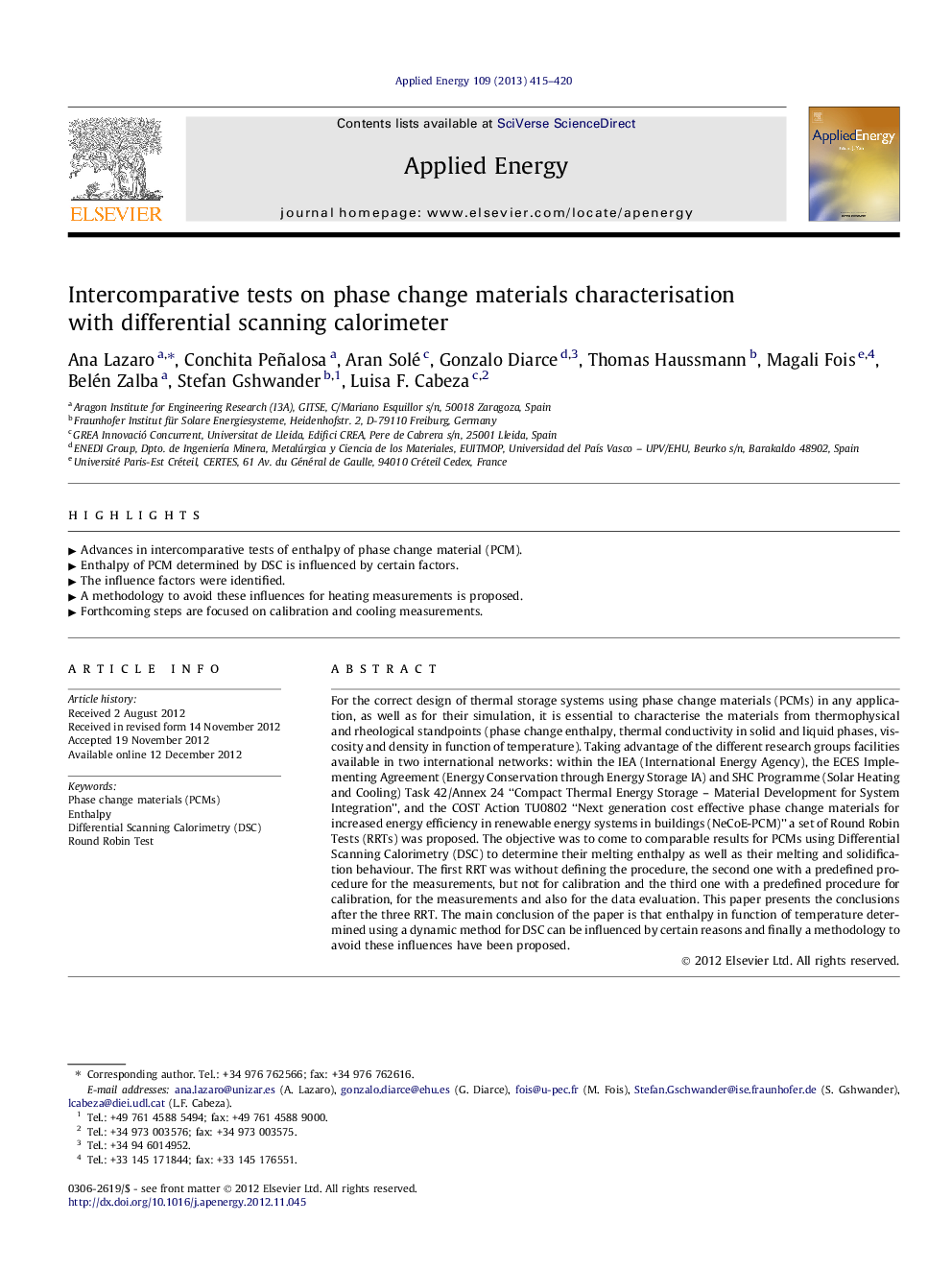| Article ID | Journal | Published Year | Pages | File Type |
|---|---|---|---|---|
| 243120 | Applied Energy | 2013 | 6 Pages |
For the correct design of thermal storage systems using phase change materials (PCMs) in any application, as well as for their simulation, it is essential to characterise the materials from thermophysical and rheological standpoints (phase change enthalpy, thermal conductivity in solid and liquid phases, viscosity and density in function of temperature). Taking advantage of the different research groups facilities available in two international networks: within the IEA (International Energy Agency), the ECES Implementing Agreement (Energy Conservation through Energy Storage IA) and SHC Programme (Solar Heating and Cooling) Task 42/Annex 24 “Compact Thermal Energy Storage – Material Development for System Integration”, and the COST Action TU0802 “Next generation cost effective phase change materials for increased energy efficiency in renewable energy systems in buildings (NeCoE-PCM)” a set of Round Robin Tests (RRTs) was proposed. The objective was to come to comparable results for PCMs using Differential Scanning Calorimetry (DSC) to determine their melting enthalpy as well as their melting and solidification behaviour. The first RRT was without defining the procedure, the second one with a predefined procedure for the measurements, but not for calibration and the third one with a predefined procedure for calibration, for the measurements and also for the data evaluation. This paper presents the conclusions after the three RRT. The main conclusion of the paper is that enthalpy in function of temperature determined using a dynamic method for DSC can be influenced by certain reasons and finally a methodology to avoid these influences have been proposed.
► Advances in intercomparative tests of enthalpy of phase change material (PCM). ► Enthalpy of PCM determined by DSC is influenced by certain factors. ► The influence factors were identified. ► A methodology to avoid these influences for heating measurements is proposed. ► Forthcoming steps are focused on calibration and cooling measurements.
